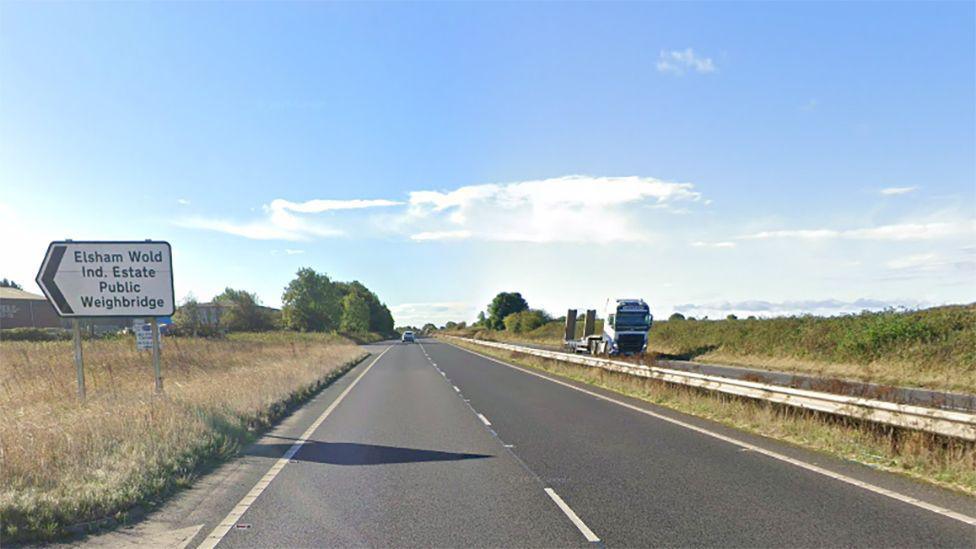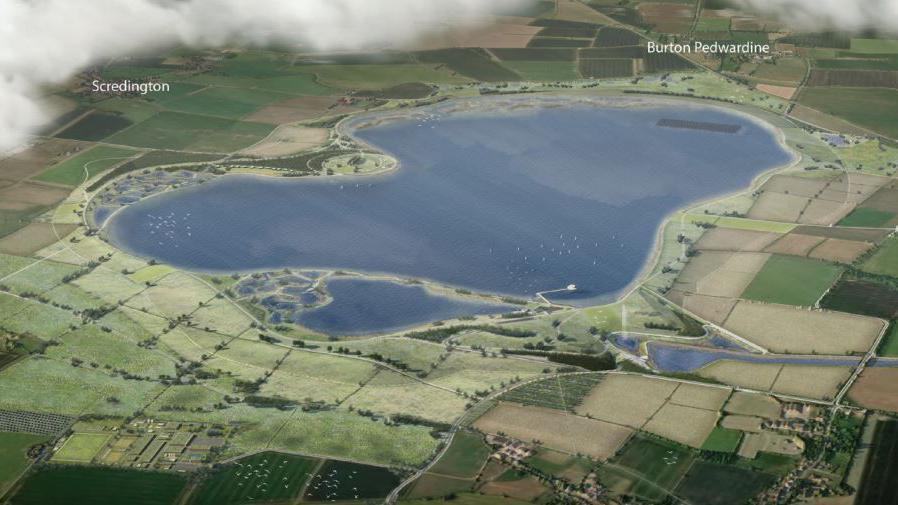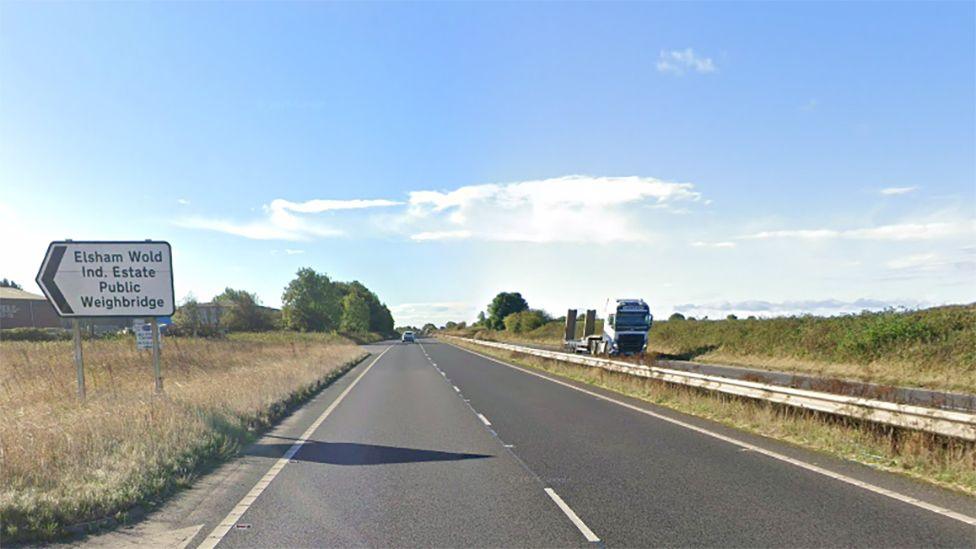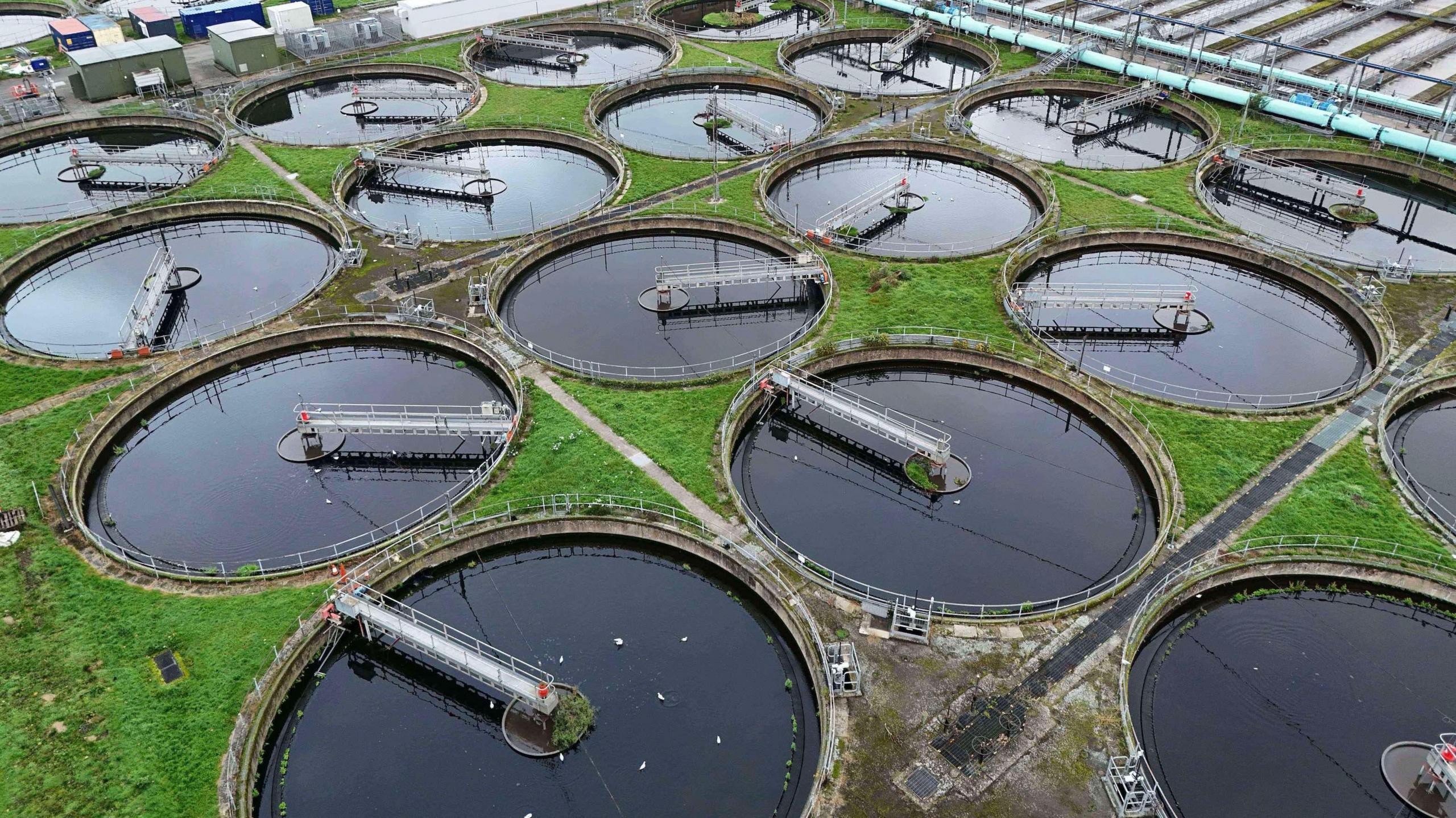Anglian Water objects to data centre plan

The water company raised concerns over where the water supply would come from as well as potential flood risks
- Published
Anglian Water is opposing plans for an artificial intelligence data centre over water supply concerns.
The data centre would cover up to 435 acres (about 175 hectares) and be built by the A15 Elsham Wolds Industrial Estate in North Lincolnshire.
Concerns have been raised by the water firm over potential flooding risks and water sourcing, with the region described as "the driest part of the country".
Greystoke, the developer behind the plans, said Elsham Tech Park had a "highly water-efficient design" and would use "closed-loop cooling systems" for the servers.
A spokesperson for Anglian Water said: "Given the pressure we're seeing on water resources, it's important we carefully consider where we use treated drinking water, so we can keep customers' taps flowing for years to come."
The company raised questions over whether the data centre would choose to use clean, treated drinking water, opposed to non-potable water, as it is "often seen as an easier route".
Greystoke said the closed-loop cooling systems, which involves reusing water, would "ensure no water is evaporated or released as part of the cooling process".
A spokesperson for the company added: "We therefore do not anticipate an impact on local water availability or sewerage systems.
"We are confident that a sustainable water strategy will be agreed with Anglian Water and the local authority."
Industry sources raised concerns earlier this year on how Sir Keir Starmer's plan to make the UK a "world leader" in artificial intelligence by building data centres could lead to water shortages.

The plans envisage that up to 3,600 jobs a year would be supported during the 10-year construction project
Geoff Darch, head of strategic asset planning at Anglian Water, said last month that large data centres should be cooled with "treated sewage effluent" rather than drinking water.
He also said they should be located near water recycling plants so they could more easily access supplies.
Flooding risks at the proposed data centre were also raised as a point of concern, as there were "no sewers of an appropriate size for the development nearby", the water firm said.

Anglian Water has proposed for a new reservoir near Scredington and Burton Pedwardine, Lincolnshire
The outline application suggests it could comprise up to 15 individual data centre buildings, as well as a greenhouse complex and energy centre, according to the Local Democracy Reporting Service.
A proposed energy centre on site would produce up to 49.9MW of electricity a year, the LDRS added.
An Anglian Water spokesperson said: "Water resources for industrial growth, such as new data centres, can be particularly difficult to forecast.
"The nature of this type of growth means it's difficult to predict how much water might be needed in the future, and where in our region it will be needed."
North Lincolnshire Council said it was unable to comment while the application process was ongoing.
Listen to highlights from Lincolnshire on BBC Sounds, watch the latest episode of Look North or tell us about a story you think we should be covering here, external.
Download the BBC News app from the App Store, external for iPhone and iPad or Google Play, external for Android devices
Related topics
Related stories
- Published29 May

- Published24 April

- Published18 June

- Published7 February
